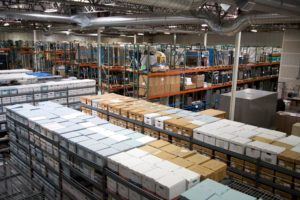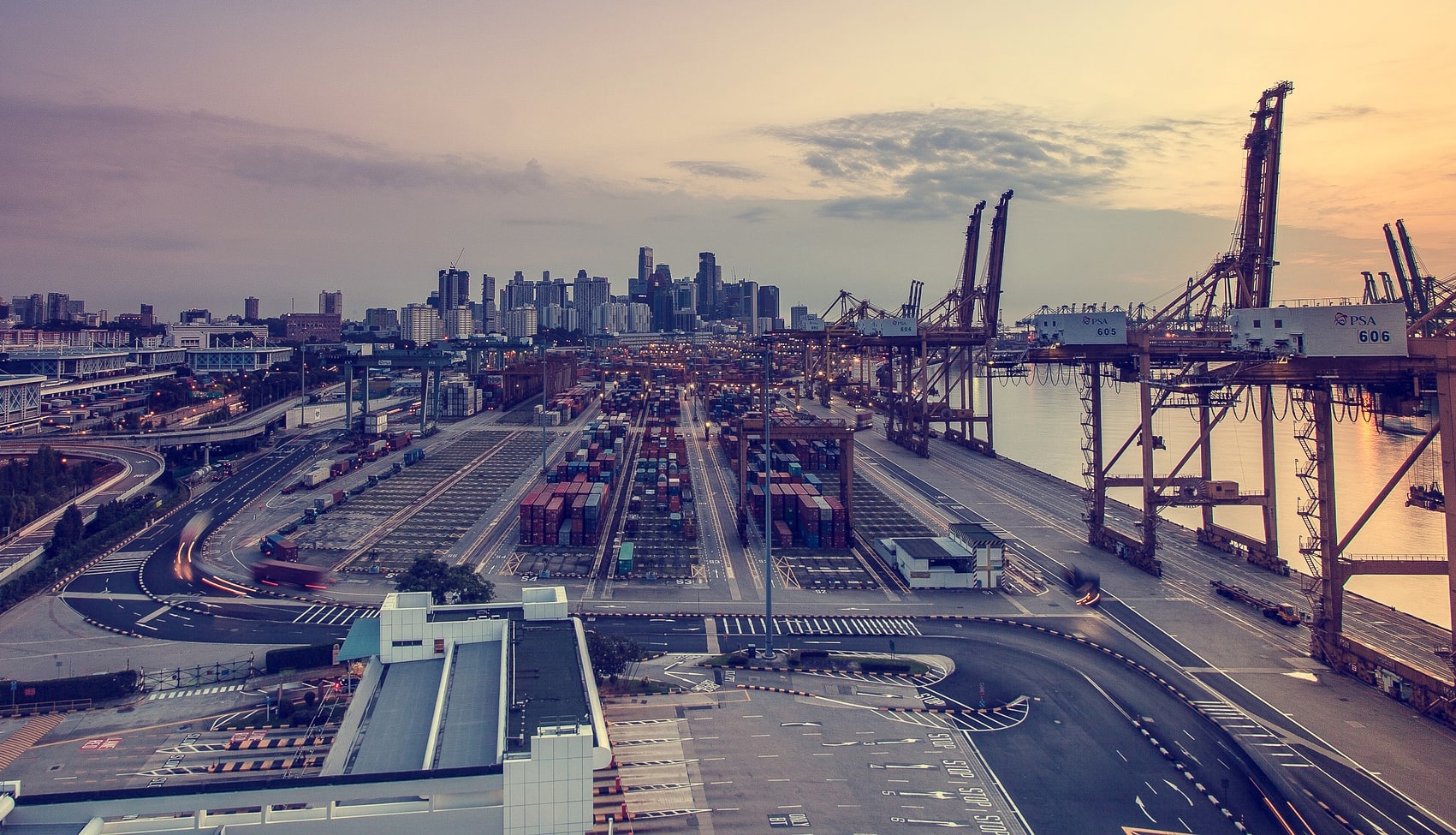
Supply Chain Automation is well established, but the increased use of Artificial Intelligence in logistics is rapidly reshaping how companies think and plan. Supply chains, although automated to a degree, still face challenges caused by the amount of slow, manual tasks required and the daily management of a complex web of interdependent parts. AI is seen by many as the key to further automation capability.
The Opportunities in Artificial Intelligence
Amazon’s CEO Jeff Bezon cites three foundations required for advancement in AI:
- Algorithms
- Computer Power
- Training Data
The first two are established, but the third area of training data holds the most future value. The aim is to use technology that can sense and respond, then combine it with AI that is capable of understanding complex cause and effect and can take action to reach desired outcomes.
Putting AI to use in logistics

AI is being used in supply chain and logistics to:
- manage inventory
- track supply and demand and automatically adjust inventories
- streamline operations
- adjust pricing data
- plot the most efficient routes to physically move inventory
- streamline customer service via voice recognition
Barriers to entry into AI are reducing. Infrastructure and platform providers such as Google and IBM now give access to their AI APIs. Software vendors such as Watson Supply Chain, ToolsGroup, and TransVoyant offer logistics and supply chain software with AI baked in, while other companies are looking to build in-house tailored technology.
Overall, data-driven and autonomous supply chains provide an opportunity for advanced levels of optimisation in manufacturing, logistics, warehousing and last mile delivery. With reducing barriers to entry, these advancements could become a worldwide reality in as little as three to four years.
How AI is changing logistics worldwide
USA Logistics giants such as DHL and C.H. Robinson see AI as being their next best friend. These companies are leading the logistics industry in AI implementation.
The DHL 2016 Logistics Trend Radar report states that Artificial intelligence and personalisation in the supply chain are behind several of the most transformational trends – including intelligent supply chains that use self-learning or ‘machine learning’ systems.
However, AI for AI’s sake is more foe than friend. Chad Lindbloom, CIO of C.H. Robinson advises that encourages executives to define clear business use cases first before tackling how to use AI, and states, “have the business challenges drive your development, instead of data scientists and engineers pushing AI into the business.”
Asia is well ahead in AI advancements in supply chain automation. Air Cargo companies in Hong Kong are using sophisticated AI, such as priority, cargo type, flight schedules, pick-up schedules and resource capabilities, to automatically handle and process cargo aircraft containers. AI pioneer developer Dr Andy Chun says, “The system pays for itself by maximizing resource utilisation, allowing the terminal operator to handle more business and generate more revenue,” The aim is for logistic companies to operate in real time, or to achieve zero latency.
Hong Kong’s Mass Transit Railway Corporation and the Kowloon Motor Bus Company are developing AI timetabling algorithms to increase service levels with limited resources.

Is AI Automation friend or foe?
The answer as to friend or foe depends on mindset. If you see it as a foe, you will most likely be out of a job sooner rather than later. If you see it as a friend, then logistics companies will welcome your attitude.
The point is to be informed and educated about technology and how it will influence your career. The keys to surviving automation for your career are to:
- Keep learning
- Improve skills and understand technology
- Find opportunities to be tech-savvy in your industry
Career pathways in logistics are bright for the savvy person willing to develop interpersonal skills and combine these with an attitude that embraces advancements in technology. If you are in a job that might be under threat from technology, such as a driver, warehouse worker, first-line customer service or middle manager, now is the time to invest in your future and get ahead in your logistics or supply chain career, and upskill with an online Diploma of Logistics.
Get qualified with a Diploma of Logistics and secure your career
Enquire below to receive your course guide






